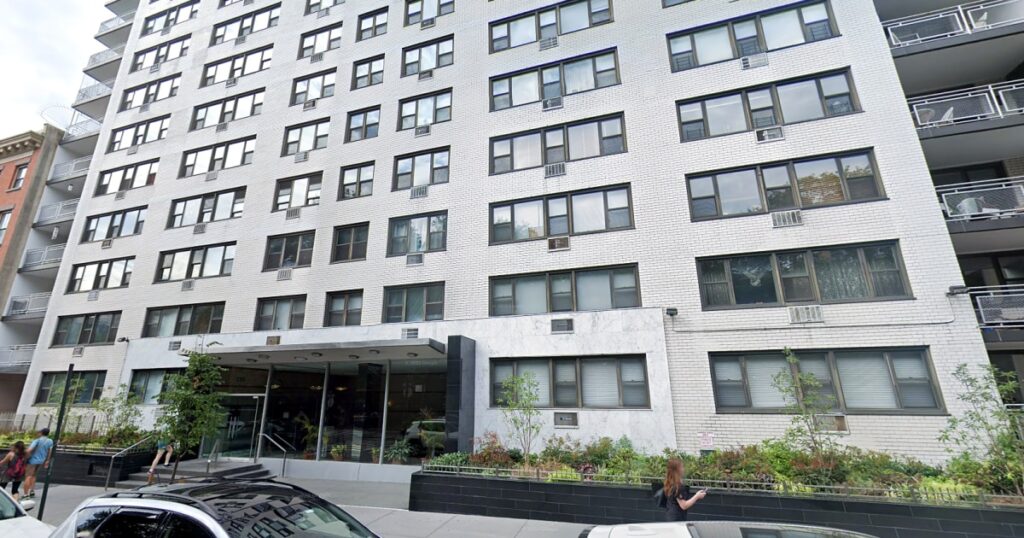In the past several weeks, President Donald Trump, who has never been fastidious about separating public and private business, has been involved in a remarkable number of potential conflicts of interest. He recently announced his intention to accept a four-hundred-million-dollar Boeing 747 from the Qatari government, which would be used in lieu of Air Force One for the remainder of his Presidency, after which it would be transferred to his Presidential library; he has continued selling access to himself through his meme coin (a company with ties to China recently announced that it would buy as much as three hundred million dollars’ worth of the coin, $TRUMP); and his trip to Saudi Arabia this week was preceded by his family’s announcement, late last year, of a new Trump Tower Jeddah. The scale of these conflicts may be unique for an American politician, but Trump, who has consistently condemned the Washington “swamp,” is one of many right-wing “populist” leaders and former leaders —Viktor Orbán, of Hungary; Recep Tayyip Erdoğan, of Turkey; Narendra Modi, of India; Jair Bolsonaro, the former President of Brazil—who have won election by running against a supposedly corrupt system, and then become embroiled in corruption scandals that often vastly eclipse those of their predecessors.
To talk about corruption, and its relationship to contemporary right-wing populism, I recently spoke by phone with Kim Lane Scheppele, a professor of sociology and international affairs at Princeton. Scheppele studies the ways in which democratic institutions come under threat—from individual politicians and from events, such as economic crashes, or in response to terrorism. During our conversation, which has been edited for length and clarity, we discussed why Trump’s corruption is distinct from those of his ideological brethren, why autocrats become surrounded with other corrupt people, and how corruption has been turned into a culture-war issue.
The relationship between corruption and the modern incarnation of right-wing populism is twofold, in that populists often run against corruption and then behave corruptly. Is that a coincidence, or are those two things connected?
There is certainly a connection between autocracy and corruption. There’s also a connection between corruption and all kinds of other things, so autocracy is not the only cause. But if a leader comes to power and starts eliminating all checks on the executive, one set of those checks will be the kinds of things that can detect and control corruption. It’s very often the case that autocrats who want to stay in power forever think, Well, gee, as long as I’m here, why don’t I just grab everything in sight? It’s a pretty common pattern that autocrats, sooner or later, engage in self-enrichment as part of their power grab.
How do you understand the fact that so many of these figures gained power by campaigning against corruption?
A lot of autocrats run on anti-corruption platforms, but often what they actually do is change the kind of corruption that exists. The kind of corruption that we saw in post-Communist Europe, for example, was a kind of corruption where all the state employees were underpaid. They weren’t entirely sure they wanted to be there. So, if you really needed to get something from the state, such as a permit, or a license, or even a passport, you’d go to the office and the clerk would tell you to stick something in his pocket and then he would make it happen. It was that kind of visible, street-level corruption.
When Vladimir Putin came to power, in Russia, or when Orbán came to power, in Hungary, they cracked down on a lot of that kind of corruption. They were really good at punishing street-level bureaucrats for engaging in it. And, in exchange, they substituted a different kind of corruption, which was skimming off the top of state contracts and seeking favors or seeking rewards from people who needed something from the very top of the system. That kind of corruption, where you give state contracts to your friends in exchange for taking something off the top, is not very visible to the average person. And so it’s often the case that when those kinds of autocrats come to power, it looks like they’re stamping out corruption, and they are stamping out a particular kind of corruption, but they’re moving it elsewhere in the system, where it’s not so visible. So, it’s not surprising that autocrats typically run on anti-corruption platforms. And it is not surprising that their fans think they’ve actually fought corruption in some kind of meaningful way. But it’s not inconsistent with the idea that these autocrats are also corrupt. They are just corrupt differently.
I don’t want to draw exact parallels, but it reminds me of how Trump and Elon Musk are talking about the U.S. government now, saying it’s wasteful, it’s inefficient, it’s giving all your money to people that don’t deserve it. I’m skeptical that Trump is actually going to be successful in stopping whatever corruption of this sort actually exists, but clearly what it’s going to be replaced with is a type of oligarchy where Trump and his friends take from the top, as you were explaining.
Exactly. They are saying that Social Security pays people who are a hundred and fifty years old, or that Medicaid is going to undeserving people who are just malingering. And they claim to see a lot of corruption in the kinds of welfare programs that the state runs. And that’s something that has a very broad audience because, first of all, there probably is a lot of low-scale fiddling with the rules. Many people probably know somebody who’s gotten a state benefit that they didn’t entirely deserve. And so that kind of corruption looks like something that does have to be wiped out. But then what you get instead is a budget going through Congress that would massively tilt tax benefits toward Trump and Musk. Also, if you look at Elon Musk, his fortune is largely from a basis in what were state contracts. And there have been reports about making the Federal Aviation Administration use Starlink, which he owns, or about firing the people who were investigating his companies. So Musk stands to get massively more wealthy from exactly what he’s doing in his government capacity. But this corruption might not be as visible as the street-level stuff that people feel familiar with.
What is striking about Trump is how openly corrupt he is in other ways. Does that make him distinct from other leaders?
Yeah, but I think that this kind of corruption is consistent with Trump’s brand. He’s known as a successful businessman. Whether he is or not is a different question. But that’s the reputation. And he’s made a career out of taking advantage of opportunities, or, at least, this is the way he portrays it, and that that’s part of what makes him successful. So the openness of the corruption is partly just a flouting of all the rules, for which he gets a lot of credit with his base anyway. Some of it is also building on the brand that somebody really smart will take advantage of whatever opportunity is presented to them.
Now, that’s really different from someone like Orbán or someone like Putin. They came to power as anti-corruption figures determined to turn around economies that had basically collapsed. They couldn’t be seen to be skimming off the top. So what happens in Hungary is that very little of Orbán’s fortune is held in Orbán’s name. Instead, his friend from school, a guy whose name is Lőrinc Mészáros, who was a manual worker, has now become the richest man in Hungary. How has he become rich? He’s become rich off of state contracts, and his nickname is Orban’s Walking Wallet. He’s the thing into which Orbán sticks his cash. It is not in Orbán’s name. He goes to great lengths to hide the wealth that he’s accumulating by virtue of being an autocrat.
Putin is much the same. He has these villas that drones have discovered, and a lot of offshore wealth, which is really hard to document because of the complex way in which it’s kept. But these autocrats’ corruption is hidden because it’s not consistent with their brand. So, I think it varies, but Trump is really one of a kind in the sense of being so out in the open about violating all the ethics rules that this government has.
Trump is arguing that the system is corrupt and rigged, but he’s essentially saying, reading both between the lines and not between the lines, that it’s rigged in favor of other people. And these other people tend not to be his base. So I’m curious about the degree to which that’s true in the countries you’ve studied—that it becomes hard to separate out corruption as a rhetorical issue from other cultural issues or resentments.
I think this is absolutely true in India, and to some extent in the U.S., where the corruption narrative is that there are all these undeserving people who are getting stuff that you should be getting. And that I, the leader, will redirect that stuff to you. Another thing about Modi, though, is that his whole brand is to look pious, and to look like he’s the kind of man for whom money is the least important thing in life. So it would be completely scandalous to discover that he’s skimming money off the top.



